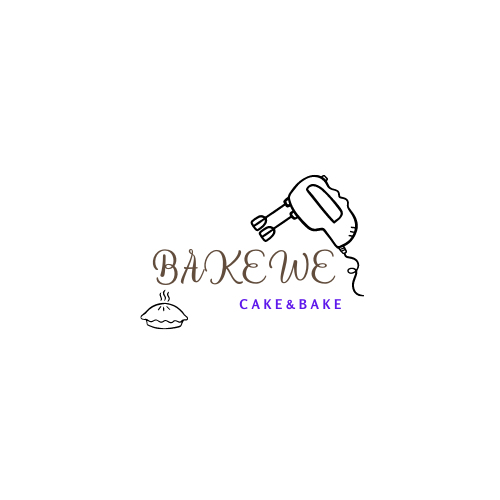Introduction
Welcome to the ultimate guide for aspiring professionals seeking opportunities in user university jobs. In today’s digital age, user experience (UX) has become paramount, especially within educational institutions. the demand for skilled professionals in user jobs continues to rise. This guide is your roadmap to navigating this dynamic and rewarding career path, providing valuable insights and actionable advice every step of the way.
1. Understanding the Landscape
It encompass a diverse range of roles focused on enhancing the digital experience for students, faculty, and staff within educational institutions. From UX designers and researchers to content strategists and accessibility specialists, these roles play a crucial role in shaping the online ecosystem of universities.
Are you passionate about creating intuitive interfaces that facilitate seamless navigation? Do you thrive on conducting user research to uncover insights that drive design decisions?
2. Navigating the Recruitment Process
Entering the field of user jobs requires a strategic approach to the recruitment process. Whether you’re a recent graduate or a seasoned professional looking for a career change, understanding the key steps involved in securing a job in this competitive field is essential.
From crafting a standout resume that highlights your relevant skills and experiences to preparing for interviews that showcase your problem-solving abilities and creativity, this section offers practical tips to help you stand out to potential employers.
3. Essential Skills for Success
What skills do you need to excel in user y jobs? Beyond technical proficiency in design tools and programming languages, successful professionals in this field possess a unique blend of soft skills and domain knowledge.
Effective communication, collaboration, and empathy are just as important as proficiency in UX methodologies and information architecture. Learn how to cultivate these essential skills and position yourself as a valuable asset to seeking to elevate its digital presence.
4. Emerging Trends and Technologies
The field of user university jobs is constantly evolving, driven by technological advancements and changing user expectations. Staying abreast of emerging trends and technologies is key to remaining competitive in this dynamic industry.
From the rise of immersive technologies like virtual and augmented reality to the growing importance of accessibility and inclusive design, this section explores the latest trends shaping the future of user experience in higher education.
5. Overcoming Challenges and Roadblocks
While a career in a jobs offers plenty of opportunities for growth and innovation, it also comes with its fair share of challenges. From navigating organizational silos and stakeholder buy-in to managing tight deadlines and competing priorities, professionals in this field must be adept at overcoming obstacles with resilience and creativity.
Learn how to tackle common challenges head-on and leverage your skills to drive meaningful change within environments.
6. Networking and Professional Development
Building a strong network of peers and mentors is essential for success in any field, and using jobs is no exception. Whether through attending industry conferences, participating in online communities, or engaging in local meetups, networking can open doors to new opportunities and valuable insights.
Additionally, investing in continuous professional development through courses, certifications, and workshops can enhance your skills and credentials, making you a more attractive candidate to prospective employers.
7. A Fulfilling Career Path
In conclusion, embarking on a career in user jobs offers a unique blend of creativity, technical expertise, and social impact. By leveraging your skills to improve the digital experiences of students and faculty, you can play a meaningful role in shaping the future of higher education.
Are you ready to take the first step toward your dream job? With the insights and strategies provided in this guide, you’ll be well-equipped to navigate the competitive landscape and chart a course toward a fulfilling and rewarding career.
FAQs
What are the typical responsibilities of a UX designer ?
A UX designer in a university setting is responsible for creating intuitive and user-friendly interfaces for digital platforms used by students, faculty, and staff. This includes conducting user research, designing wireframes and prototypes, and collaborating with cross-functional teams to ensure a seamless user experience.
How can I gain relevant experience in these jobs as a recent graduate?
As a recent graduate, gaining relevant experience in jobs can be achieved through internships, freelance projects, or volunteering opportunities. Additionally, building a portfolio showcasing your skills and projects related to UX design, content strategy, or accessibility can help you stand out to potential employers.
What role does accessibility play in user these jobs?
ensuring that digital platforms and content are usable by individuals with disabilities. Professionals in this field work to ensure that websites, applications, and online resources adhere to accessibility standards and guidelines, providing equal access to information and services for all users.
How can I stay updated on the latest trends and technologies jobs?
Staying updated on the latest trends and technologies in jobs can be achieved through various channels, including industry publications, blogs, conferences, and online courses. Engaging with professional communities and networking with peers can also provide valuable insights into emerging trends and best practices.
What are some common challenges faced by professionals in user university jobs?
Professionals in user university jobs often face challenges such as navigating complex organizational structures, securing buy-in from stakeholders, and balancing competing priorities. Additionally, keeping pace with rapidly evolving technologies and user expectations requires continuous learning and adaptation.
Is professional development important for success in user university jobs?
Yes, professional development is essential for success in user university jobs. By investing in continuous learning and skill-building activities such as courses, certifications, and workshops, professionals can stay competitive in the field and expand their opportunities for career advancement.
Conclusion
In conclusion, pursuing a career in user university jobs offers a wealth of opportunities for individuals passionate about improving digital experiences in higher education. By honing your skills, staying abreast of industry trends, and networking with peers, you can position yourself for success in this dynamic and rewarding field.
